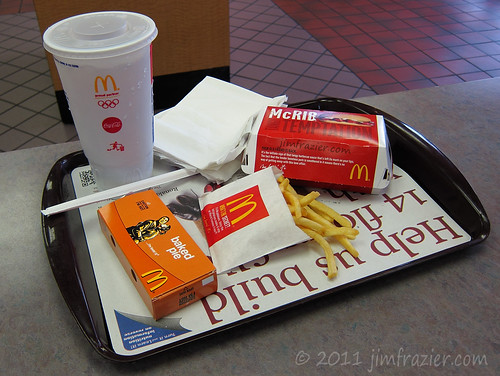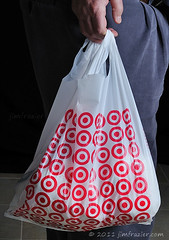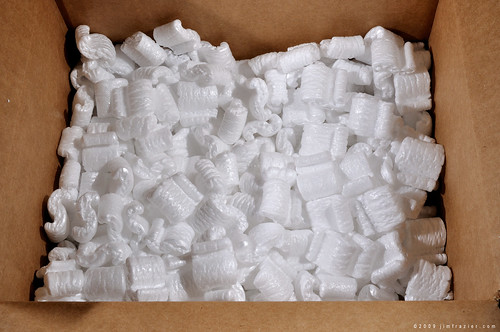
It's time to talk about containers again, for several reasons. First, this article gave me an excuse to take the above picture. Second, I therefore had a reason to visit McDonald's for a McRib. Third, how often do you get to write off a McRib as a business expense?
Most importantly, in my previous articles about containers, I didn't really talk about restaurants. But lately, I've started using McDonald's in the container section of my Taxing Policy webinars, so I thought it was time for a picture to illustrate the PowerPoint presentation. And, well, I haven't written an article in a while.
 Most states have container exemptions. These allow the vendor to be able to purchase containers tax free if the containers will be sold, with the product, to the customer. Basically it's an extension of the resale exemption. The seller is essentially buying the containers for resale. Even though they're not billing the customer separately, they are billing them for the containers as part of the cost of the actual merchandise sold. In other words, Target didn't have to pay tax on the bag. Just like the socks inside the bag, they bought the bag for "resale."
Most states have container exemptions. These allow the vendor to be able to purchase containers tax free if the containers will be sold, with the product, to the customer. Basically it's an extension of the resale exemption. The seller is essentially buying the containers for resale. Even though they're not billing the customer separately, they are billing them for the containers as part of the cost of the actual merchandise sold. In other words, Target didn't have to pay tax on the bag. Just like the socks inside the bag, they bought the bag for "resale."So let's take the top picture apart and talk about each item.
1. The bag for the delicious fries, cup (and lid) for my iced tea, the box for the holiday pie, and the clam-shell for the wondrous McRib are all clearly containers. McDonald's doesn't expect them back from you. You bought them with the food. Therefore, they are containers that generally qualify for the exemption.
2. What about the napkins and straw? In most states, disposable items like these that are available for the customer to take, are also exempt. They obviously aren't containers, but they are clearly part of the selling price of the food and, once you've taken a straw, the restaurant would really prefer you not put it back. This kind of "free for the taking" rule is only for restaurants.
3. What about the brown tray? Did you buy it with the food? Can you take it with you? No. They didn't sell you the tray with the food. That tray was purchased by McDonald's to use over and over again (after they've cleaned it, of course). Unlike the above items, it was not sold to you with your food. It is a "returnable container." Therefore the restaurant paid sales tax for the tray.
4. Finally, what about the "place mat" on the tray? That's a stumper and I can see it going both ways. It is certainly something that has value to the customer providing a clean place for your fries to spill out of the bag. But it's also usually a marketing piece for the restaurant. I personally would take the position that it meets the test for a disposable item and therefore is not taxable. But the auditor might argue that one.
So there you go. Containers for restaurants. Remember, every state is different. Some states have broader rules, some are stricter. Do your research and don't take my word for it. See the disclaimer. And it's almost lunch time as I write this. Hmmm. Wonder if they still have McRibs at my McDonald's?
Merry Christmas and/or Seasons Greetings. May all your holidays be glad and let there be McRibs available at your McDonald's.
The Sales Tax Guy
http://salestaxguy.blogspot.com
See the disclaimer - this is for education only. Research these issues thoroughly before making decisions. Remember: there are details that haven't been discussed, and every state is different. Here's more information
Get these articles in your inbox - subscribe at http://salestaxguy.blogspot.com
Don't forget our upcoming seminars and webinars.
http://www.salestax-usetax.com/
Picture note: the image above is hosted on Flickr. If you'd like to see more, click on the photo.




